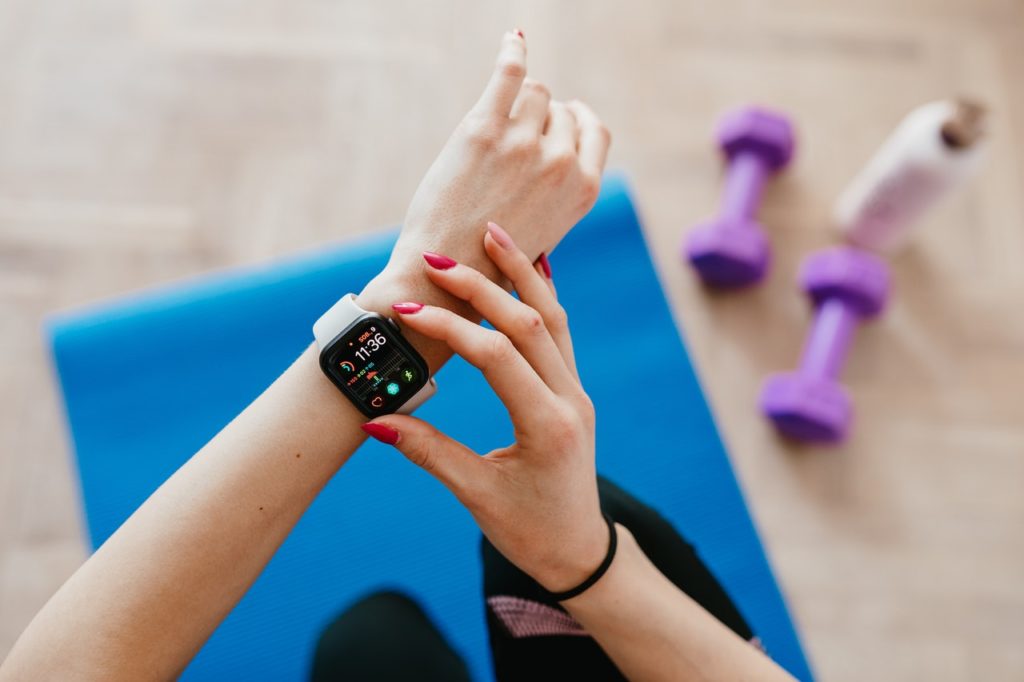With each year, we advance further into the digital age, and the capabilities of AI continue to be mind-blowing. Innovation on this frontier seems to be particularly promising when it comes to health.
Specialists like Tan Urology offer robotic-assisted surgery, finding that it outperforms traditional open surgery. Deep learning algorithms have the potential to diagnose health issues as effectively as medical experts.
Those things may be out of reach for the average person, but we do have access to a marvel of technological innovation on our wrists: the modern fitness tracker. How valuable can it really prove on your journey to better health?
A question of accuracy
Most fitness trackers on the market are capable of gauging several essential biometrics. These include heart rate, step count, sleep time and quality, and calories burned.
Those aren’t things you’d be particularly enthusiastic about keeping track of manually on your own. The fact that these devices allow you to do so passively, with a wearable you often forget sits on your wrist, is a great convenience.
However, healthcare professionals and researchers alike use specialized machines in their work. With consumer-grade technology, you’re swapping out dedicated hardware for algorithms that try to extrapolate data and thus simulate precise measurements.
Several studies have shown that the numbers reported aren’t always accurate. The errors vary with model and manufacturer but usually come down to the limitations of the technology.
For step counts, for instance, devices don’t actually track actual steps you take. They use an accelerometer to detect overall body movement, combining that with machine learning and a database of biometric information to figure out if the movement counts as a step.
The accelerometer is also integral to the way devices attempt to track sleep. They may couple those measurements of motion with a heart rate monitor to enhance accuracy.
But sleep passes through different stages, some of which can involve elevated heart rate and even movement. And a person might remain completely still and relaxed without actually dozing off. Thus, the further removed a biometric is from what the hardware can actually track, the greater the chance for error.
Finally, there are derivative measures, such as calories burned. To estimate this, devices rely on user input to compute your basal metabolic rate. This is used together with data on your movement (once again, from the accelerometer) to calculate your overall activity. Again, the error margins are large.
Privacy concerns
Even as our lives have become increasingly intertwined with the digital, data privacy and security issues have become highly controversial.
A study of multiple devices showed that most of them were vulnerable to surveillance. Some also collected data beyond what might be needed for strict functionality. Many companies also secured broad rights to access and even sell user data, obscured in arcane terms of service.
For many people, such security concerns would make a device a no-go. Others might think it doesn’t matter as long as the device does its job. It’s not as though compromised fitness data could somehow lead to identity theft or a hacked bank account.
But if you think about it, data is sold to marketers, who use it to target an audience. Your individuality, including your aspirations for a healthy lifestyle, can get lost in the process. And you may find yourself targeted by ads for products that don’t necessarily support your goals: fad supplements, caffeinated energy drinks, or diet pills.

Game over
Arguably the biggest contribution of a fitness tracker comes from its role in the gamification of your journey to better health.
Gamification requires that the user be given a sense of progress towards a goal. These devices provide that. They offer continuous, real-time feedback on what you’re doing, how well you measure up to your targets, and a sense of accomplishment once you hit the daily goal.
When it works, gamification is a powerful tool for motivation. But the problem is that fitness trackers can be gamed. Step counts can be faked by attaching the device to a bike wheel, for instance. Conversely, they can fail to give proper credit to users trying their best, which detracts from motivation.
Granted, fitness trackers are relatively new technology, and we’ll continue to see innovation in this realm. Yet being commercial devices, their design is also evolving to emphasize the ‘wear’ aspect by becoming more stylish, rather than implementing more sophisticated measuring technology.
Overall, remember that fitness trackers should be one option in your toolbox. If you can form the habit of exercising daily and eating healthy, you might not even need their measurements to know that you’re making real progress.




